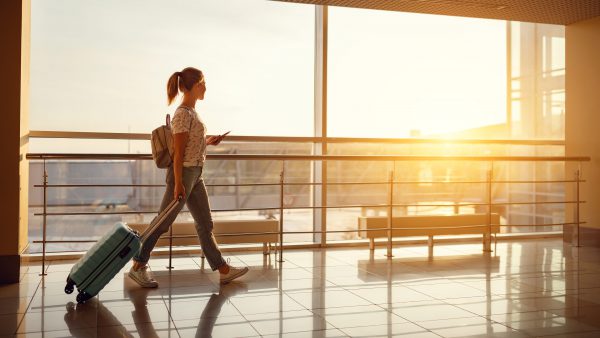SINGAPORE, 10 February 2022: Countries in the Asia Pacific are increasingly taking firmer steps to reopen travel and tourism as they relax border controls and social restrictions despite the rise in Covid-19 cases due to the Omicron variant.

Malaysia: On 8 February, Malaysia’s government advisory council agreed to reopen the nation’s borders to international visitors as early as 1 March without requiring travellers to undergo compulsory quarantine. Travellers who enter Malaysia need to conduct a Covid-19 test before departure and upon arrival. Malaysia has already opened to international travellers through the Langkawi International Travel Bubble.
Australia will reopen its international borders to welcome fully vaccinated tourists on 21 February, almost two years after introducing strict lockdowns. Travellers must be double vaccinated to enter Australia.
Singapore has reinstated the Vaccinated Travel Lane (VTL) scheme since 21 January, allowing fully vaccinated visitors from 24 countries to enter the country after a PCR test upon arrival. Singapore now only requires international vaccinated travellers on the VTLs to do self-administered antigen rapid tests only if they need to leave home from Days 2 to 7 of their arrival.
Its Transport Minister recently said, “Ultimately, we want to work towards quarantine-free travel for all vaccinated travellers.”
Singapore also announced that it would be hosting the Formula 1 Grand Prix for the next seven years starting from this year. The USD3.3 billion expansion of Marina Bay Sands will be completed in 2026, which will feature amongst new facilities a performance arena, a fourth tower featuring about 1,000 hotel rooms, a sky roof with a swimming pool.
Vietnam has launched the second phase of its reopening programme by approving international flights between Vietnam and nine destinations, including San Francisco or Los Angeles, Singapore, Bangkok, Phnom Penh, Vientiane, Beijing or Guangzhou, Tokyo, Seoul, and Taipei.
A full reopening is expected sometime in June or July 2022, although it may be as early as 31 March. Passengers are no longer required to take Covid tests for domestic flights.
The Philippines will launch quarantine-free travel from 10 February. Travellers will be required to show proof of a negative Covid-19 PCR test taken within 48 hours of their departure and self-monitor for symptoms for seven days after arrival.
Thailand reinstated its Test & Go scheme from 1 February but with stricter rules. Under this revised programme, vaccinated travellers from any country can enter the country, but they will have to undergo two PCR tests (rather than one) upon arrival and again on day five. It requires them to buy two overnight stays at a participating hotel to obtain the Thailand Pass online approval. The second hotel overnight stay and the accompanying PCR test can be booked at a different hotel and destination to the first.
Cambodia has reopened fully to international vaccinated travellers without quarantine requirements since November. Vaccinated travellers need only have a negative PCR test 72 hours prior to departure to Cambodia, a negative RTK test upon arrival and health insurance covering USD50,000.
Indonesia has temporarily banned foreign tourists entering the country through Jakarta’s airport in a bid to slow the Omicron variant. Bali welcomed the first international flight in nearly two years, carrying foreign visitors in early February. However, vaccinated travellers to the island must still quarantine between five and seven days at hotels. A travel bubble between Singapore and the resort islands of Batam and Bintan in Indonesia will be created, providing visitors with a quarantine-free stay.
Due to the Omicron variant, Japan has extended the ban that bars foreign visitors from entering until the end of February. Meanwhile, the country has reduced its on-arrival quarantine period twice in two weeks – from 14 days to 10 days and now to seven days.
New Zealand will begin reopening to the world in stages starting 27 February. A five-phase plan will allow fully vaccinated travellers into the country from 13 March, although they will still have to self-isolate for 10 days but can do so at home. By July, fully-vaccinated visitors from Australia or visa waiver countries – including the UK, the US, and many European nations – will be able to enter New Zealand and self-isolate on arrival.







Thanks for your article but there is a mistake on Cambodia conditions.
health insurance covering USD50,000.
It is not an obligation… Insurance is not MANDATORY to obtain a tourist visa and to enter in the country.